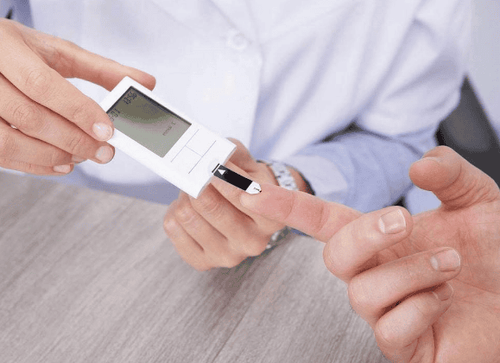This is an automatically translated article.
Regardless of age, everyone experiences body aches. Pains can come and go quickly, or they can last longer. However, you should not be subjective with this condition, but go see a doctor to be examined and find out the exact cause so that timely treatment of the underlying disease can be found in these pain.
1. Chest pain, shoulder pain, arm pain and jaw pain
It can be difficult to tell when pain is normal and when pain is latent of illness. Pain, pressure, or a feeling of squeezing in the chest are classic signs of a heart attack. This condition means that the heart is not getting enough oxygen from the blood. When the body works, it causes pain.
This condition causes severe pain and is often associated with shortness of breath. Heart attacks often spread to other parts of the body causing: shoulder pain, arm pain, neck pain, jaw pain, back pain.
This pain symptom in women is often different from that in men. Women with pain may be more tired and short of breath and accompanied by some changes such as sweating...
Chest pain and nausea, sweating or indigestion that worsen with activity Then see your doctor right away to get checked and find out the specific cause.
2. Headache
The head feels like it's split open and there's no medicine to help with the pain. This condition, will cause people to worry and immediately think of possibly a brain tumor. However, that may or may not happen. A lot of brains don't have nerve endings. So most headaches will be caused by other reasons.
Although it's uncommon, pain in the brain can be a symptom of a stroke or blood clot. Or some other symptoms such as: stiff neck, fever, confusion, fainting, weakness or numbness of the extremities. The pain that takes place makes the patient feel a level of pain that is very uncomfortable and has never been experienced before. There are also other signs that the pain may be unusual: pain that gets worse with standing, or over time and without medication, or family history of this disease.
In this case, the patient feels the pain is sometimes very intense, but other times it is dull. At that time, the person may suspect an aneurysm and should go to the emergency room immediately for prompt treatment.

Có nhiều nguyên nhân có thể dẫn đến những cơn đau nhức đầu
3. Lower back pain
Lower back pain can be one of the symptoms of heart disease. Tell your doctor about your risks such as diabetes , high blood pressure , cholesterol , obesity ... and importantly how painful symptoms will manifest when you activity or during exertion. Because, all of these are risk factors for heart disease.
Usually, back pain will develop slowly on the muscles of the body. But in severe cases, it can have some signs like:
Infection Tumor Herniated disc Kidney stones Furthermore, back pain can also be caused by aortic dissection. When that happens, the main blood vessel to the middle and lower part of the body bursts, which is a very serious problem. Patients need to see a doctor immediately to check to find the cause and timely treatment.
4. Abdominal pain
If there is still an appendix in the body, pay attention to pain in the abdomen. Because, if the pain is persistent and severe, it is possible that this segment of intestine has ruptured. At the same time, it can cause serious infections, even life-threatening.
Đau bên phải bụng kéo dài có thể là triệu chứng của viêm đoạn ruột thừa
The appendix can cause pain if:
Pain is located on the lower right side of the abdomen Pain that gets worse when the doctor puts pressure on the abdomen Nausea and vomiting In addition, abdominal pain can also be a sign of :
Pancreatic problems Intestinal problems Ectopic pregnancy
5. Calf pain
Calf pain is a swollen, red and painful leg. It could be a blood clot located in a vein. Deep vein thrombosis (DVT) can travel from the legs up to the lungs and cause serious damage to the body. In some cases, it can be fatal.
If you don't move a lot, you are more likely to have a deep vein thrombosis. Or if you're over 60, pregnant, obese, or have cancer or varicose veins, you're also at increased risk for deep vein thrombosis.
6. Hand and foot pain
Diabetes puts the body at risk for disorders that damage the nerves. It can occur in any location, but is more common in the hands, arms, feet, and legs. The longer you have diabetes, the higher your risk of nerve damage.
Tiểu đường làm tăng nguy cơ bị rối loạn và hỏng các dây thần kinh
Peripheral neuropathy pain is often described as numbing, sad, or tingling, or sharp pain. These pains usually occur at night. It can also cause you to lose feeling in your arms and legs. If you have diabetes, you may not feel pain in your legs or arms because the numbness is overwhelming. At that time, your body can get an infection without you even knowing it. If it spreads or becomes severe, your doctor may have to amputate the affected limb.
7. Can't put a finger in pain
Aching and sore hands that won't go away could be some of the symptoms of depression or anxiety. These pains are difficult to define, but they are completely ongoing and have a significant impact on the patient. In addition, mood disorders can also cause pain in parts of the body such as:
Joints Hands and feet Back Head In short, if you experience pain, soreness for a while or you have symptoms If you are concerned about an increase in pain, you should see your doctor to be tested to find out the cause. Because, some pain can be a potential symptom that can cause serious health problems.
Vinmec International General Hospital is the address for examination, treatment and prevention of diseases. When performing the examination process at Vinmec, customers will be welcomed and used modern facilities and equipment along with perfect medical services under the guidance and advice of experts. Good doctors, well-trained both at home and abroad.
Customers can directly go to Vinmec Health system nationwide to visit or contact the hotline here for support.
Reference source: webmd.com













